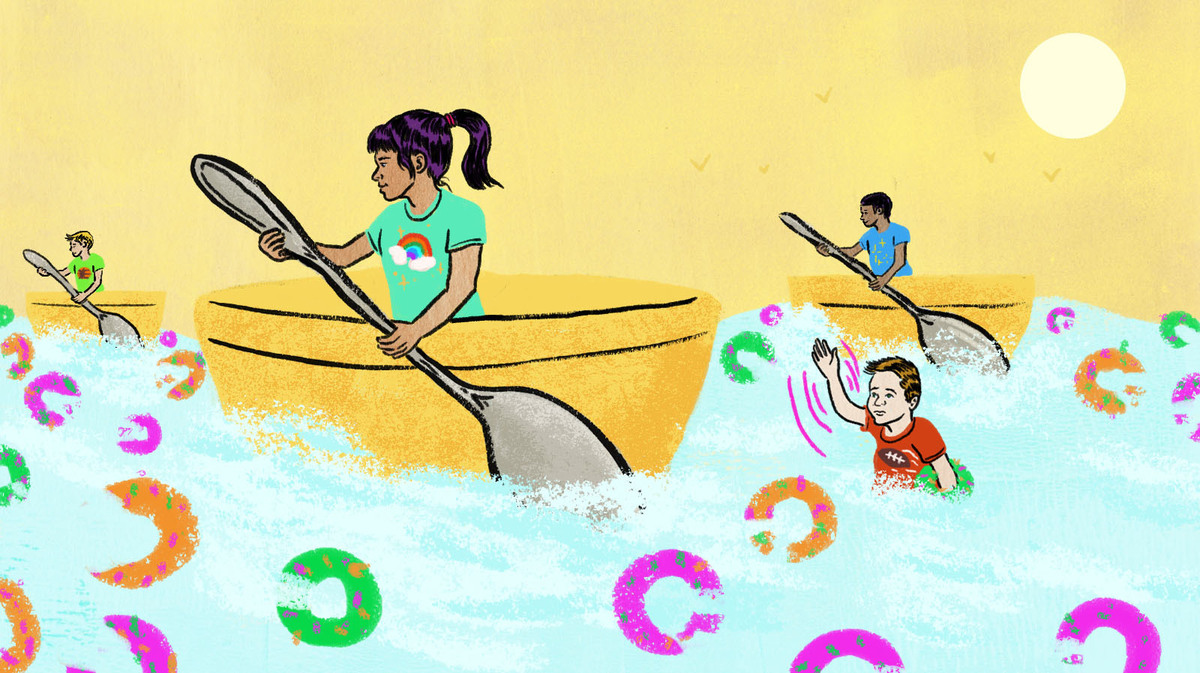
Enlarge this image
Daniel Fishel for NPR
Daniel Fishel for NPR
Joel Barron, a mother of two in Minnetonka, Minn., has a question for policymakers:
"Will you look in my child's eyes when they do not have any food?"
Until recently, Barron's children, ages 10 and 12, qualified for free school meals. During the last school year, when they and millions of other kids were learning remotely, Barron received the value of the meals they missed on a debit card that she could use to buy groceries herself.
The program, called P-EBT, began with the pandemic in March 2020.
"It was a godsend," Barron says of the Pandemic Electronic Benefit Transfer program, which is administered by the U.S. Department of Agriculture (USDA). "We were able to actually get through the whole month without trying to think about, 'Oh, we have to go to the food [pantry].' "

National Your public school kid's lunch might be served on a pizza slice box. Here's why
That changed after Barron's school district reopened for in-person learning. Because a COVID-19 vaccine wasn't yet available for her 10-year-old son and her daughter struggles with asthma, Barron felt safer keeping them home again this school year and enrolling them in the district's online academy.
The problem is that, according to USDA guidance, "a virtual academy, whether administered by the State or the school district, is not eligible to participate in the [National School Lunch Program (NSLP)]." Which means no P-EBT this year for families like Barron's.
The guidance excludes some students who are still learning remotelyMost schools in the U.S. started the 2021-'22 school year in person, including Barron's district. But, she says, "I decided what was best for my children was to have them attend the distance learning academy."
That academy is run by White Bear Lake Area Schools (WBLAS), and according to its website is "taught by WBLAS teachers, aligned with WBLAS curriculum and Minnesota state standards and designed to meet the same high levels of academic rigor present in traditional in-person school."

The Coronavirus Crisis Why Billions In Food Aid Hasn't Gotten To Needy Families
In short, Barron's kids still attend public school – just online. She was shocked when she realized, months into the school year, that decision meant they no longer qualified for P-EBT.
Barron took her confusion and frustration to social media in January. Her story appeared in The Counter, a food journalism website, and she even challenged NPR on Twitter: "Will you write an article on P-ebt and how virtual student[s] are left out"?
USDA, meanwhile, says students cannot receive P-EBT benefits this year if they attend a program that has not traditionally offered school meals, like a virtual academy.
"Benefits are available to children who would have received free or reduced price meals at their schools... if not for their schools' closure or reduced attendance or hours in response to the COVID emergency," a USDA spokesperson tells NPR.
"I feel like I was punished for making the best choice for my child."According to an analysis by the Brookings Institution, P-EBT "significantly reduced food hardship in the winter, spring, and summer of 2020-21."
Anti-hunger advocates say it's important for policymakers to understand that some families still don't feel comfortable returning to brick-and-mortar schools, and the USDA shouldn't simply cut them off from money that helped put food on their tables last year.
We're trying to fit the current problem into rules that were designed pre-pandemic.
Rachel Cooper, Every Texan
"We're trying to fit the current problem into rules that were designed pre-pandemic," says Rachel Cooper, a senior policy analyst with the nonprofit think tank Every Texan.








